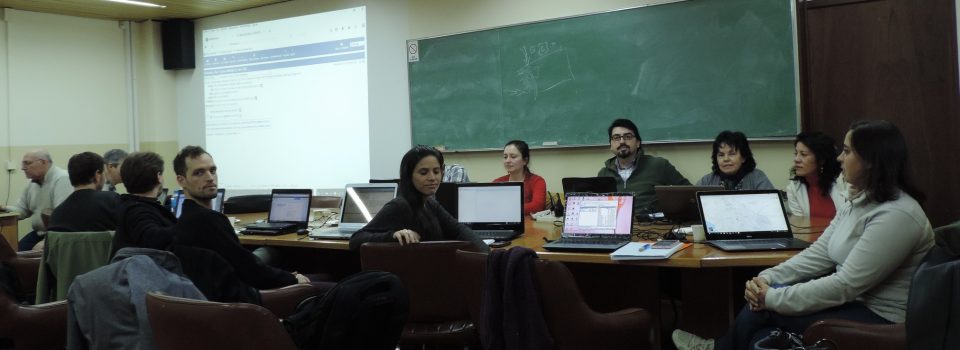IFOP researchers attend Mohid Water international course in Argentina
July 11th, 2016The importance of the course is that this type of software is a tool that has proven to be very useful for modeling different processes (physical and biogeochemical) in diverse aquatic systems (hydrographic watersheds and estuaries) at different scales.
During the days June 27 to July 1, Drs. Pablo Rojas, Gemita Pizarro and the oceanographer Ursula Cifuentes participated in the International Course: “Analysis of biogeochemical interactions in marine and continental environments with MOHID software“.
The course was organized by the Argentine Institute of Oceanography (IADO) and the Universidad Nacional del Sur, it took place in the city of Bahia Blanca (Buenos Aires province).
Dr. Rojas said that “the course approached, through examples and practical work, the use of the different modules of the software: (hydrodynamic, Eulerian and Lagrangian transport of biological particles, suspended sediment transport, residence time, water quality, biogeochemical, among others).
The use of MOHID Water will help me integrating information coming from different sources through physical-biological linkage models for the analysis and management of complex ecosystems (fiords and channels) in southern Chile.”
The oceanographer Ursula Cifuentes explained “MOHID modeling software can generate simulations of physical and biogeochemical processes in coastal areas. The advantages of this software are varied and similar to other simulation programs; however, what most stands out is its gratuitousness. From essential entrance of in-situ information, plus satellite oceanographic information, it is possible to estimate renewal processes, larval dispersal or oil spills in semi-closed water bodies. The use of this numerical simulation software will allow us to understand some coastal processes and improve a responsible and relevant decision-making.”
Dr. Gemita Pizarro concluded “it is important for researchers of our institution to be informed about these programs and their application in the analysis of databases, as they allow the coupling of different types of variables and time series that other way would be very difficult to visualize or imagine. In short, a tool that can be used by any researcher interested in understanding complex processes from databases held by the Institute, especially with shorelines as the ones of fjord systems and channels of austral southern -Chile”
